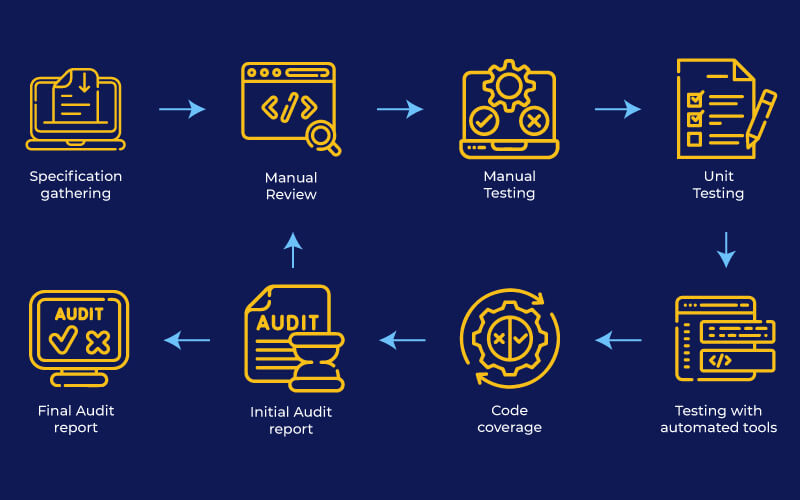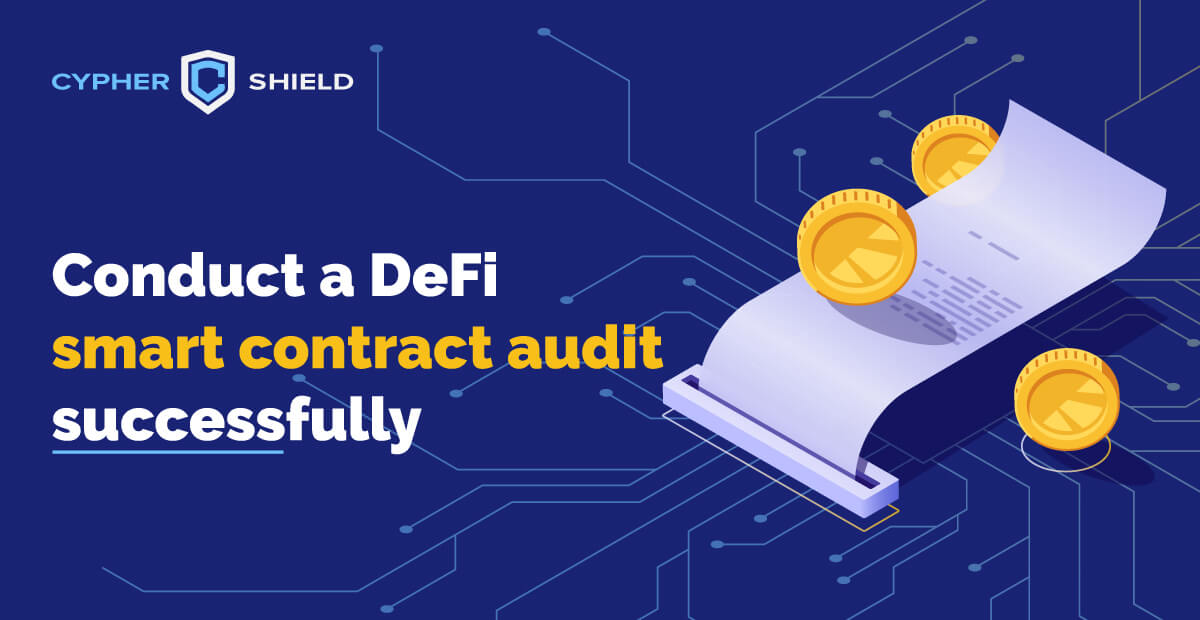Smart contract vulnerabilities can have far-reaching consequences for DeFi projects. These can not only harm or damage a single project, but they can also cause investors to back off from the DeFi ecosystem as a whole.
Smart contract audits are what have made the DeFi what it is. Though the technology underlying smart contracts has grown in strength, another issue has emerged that cannot be ignored. Developers are frequently pressed to launch their projects ahead of competitors.In their hurry, they tend to ignore vulnerabilities in smart contracts, leaving enough gaps for the unscrupulous to exploit.
Audit: An effective tool to plug the gaps
The audit is the only way to tighten the gaps in the smart contract. A specialized team of auditors searches for bugs in a smart contract’s code, explores possible risks that hackers could exploit, or analyzes code that deviates from the standard procedures. While smart contracts undoubtedly play a significant part in ensuring security, they also assist in enhancing the application’s efficiency on the sidelines.
Whether you are embarking on your umpteenth DeFi project or the first ever, you will require an experienced team of auditors to conduct a thorough exploratory examination of the smart contract. It could save your project by protecting it from severe smart contract vulnerabilities.
Understanding the audit process
The smart contract audit process entails the audit team running various test cases. They perform both manual and software-based testing to ensure that the code produces the desired test result for its intended use case. Depending on the smart contract framework, the auditing team may also use in-house and open-source security tools.
It is vital to use the right combination of manual and automated auditing to attain the desired results. A team of experienced smart contract auditors will be able to determine what works for a specific audit. Manual audits are performed by skilled code auditors to verify the precise implementation of its specifications. However, the importance of automated auditing cannot be underestimated, so several smart contract code testing tools are tested concurrently. These tools, which operate on the methodical principles of mathematics, have proven to be quite effective when implementing specification-based contracts.
Smart contract auditing covers independent assessment, verification, detailed testing, and comprehensive reporting.

Assessment and verification phases
During the assessment phase, the auditing team explores the proof of concept and the smart contract code for any vulnerabilities, which could be common ones like re-entry or deeper ones that are more difficult to detect. Process verification ensures that the contract meets the specific project requirements for a given project. Auditors examine the smart contract architecture as well as the logic implementation. The source code and libraries are being reviewed. Auditors also read the documentation, if it is understandable, to learn about the decisions made during the smart contract development phase.
Testing Phases
The period of rigorous testing has now begun. Unit testing is done under a variety of conditions and parameters. The purpose of this exercise is to determine whether the contract’s various functions are in sync with the design.
The contract for variables is next in line for the tests. Since there could be a wide range of contract triggers and resulting actions, testing the contract is essential to ensuring its handling potential variations efficiently. Pressure testing is also carried out to test the smart contract for variables that may arise from its implementation in real-world situations. Auditors make recommendations based on testing. After the implementation of the necessary changes, the contract is re-verified to ensure that there are no new vulnerabilities as a result of the code changes.
Reporting Phase
The final phase of auditing involves an in-depth report that details the vulnerabilities picked up during the process as well as the steps taken to close the gaps. A list of recommendations is given after this.
Concentrate on the auditing area
When experts audit a smart contract, they look for things like:
- Common errors include stack overflows, re-entry, and compilation errors.
- The smart contract host platform has known errors and security flaws.
- Attacks on the contract should be simulated. To put it another way, conduct break testing.
Performance Optimization
Auditing your smart contract to ensure it is performing optimally is a very useful approach. The quality of the code has a direct impact on the smart contract’s performance. Code modifications can be made with the objective of improving code quality. Contracts with well-optimized code are also more likely to be less expensive.
Exploring the contract for code that may not be exactly wrong but is significantly slowing down performance is part of performance optimization. For example, if the contract is about payments, the auditors may look into the gas prices associated with these transactions. Before the audit starts, the project manager and auditors can agree on whether to include performance optimization in the audit.
To Summarize,
However, vulnerabilities in the contract allow the unscrupulous to exploit the crypto assets stored.
A full audit is the only way out of this situation. A team of expert auditors investigates the smart contract in order to identify potential vulnerabilities and avoid such an incident.For best effect, manual and automated auditing are carried out concurrently. Independent assessment, the verification process, detailed testing, and comprehensive reporting are all phases of smart contract auditing.

